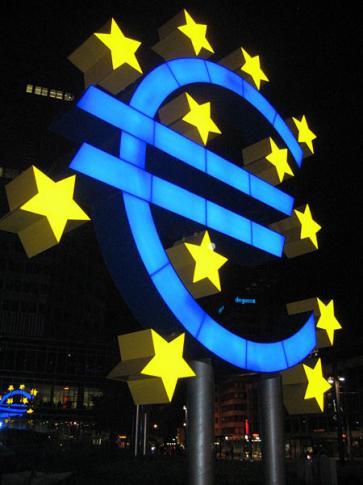Latest News
Eurozone crisis: EU moves to loosen grip of austerity

In Brussels, Herman Van Rompuy, the European council's president, called a special summit to be held in a fortnight at which the French president-elect, François Hollande, will be able to unveil his proposals for tackling the euro crisis.
Ian Traynor in Brussels and Nick Fletcher
The European executive has responded to the electoral earthquakes in France and Greece by calling for a shift towards growth across the EU as the new firebrand leftist leader in Athens stepped up his country's rebellion against austerity.
Alexis Tsipras, the leader of a group of radical Greek leftists that has been charged with trying to form a government, tore into the terms agreed by Athens for a €130bn bailout, threatening to nationalise the Greek banks and warning that Greece would walk away from its rescue deal with the eurozone.
In Brussels, Herman Van Rompuy, the European council's president, called a special summit to be held in a fortnight at which the French president-elect, François Hollande, will be able to unveil his proposals for tackling the euro crisis. The European commission supported Hollande's demands for pan-European investment to generate growth and create jobs.
"We are seizing the moment to advance our proposals in the new political climate," said Olli Rehn, the commissioner tasked with dealing with the euro crisis, as he accepted that the weekend's elections in France and Greece had changed the face of European politics.
Rehn and José Manuel Barroso, the commission's president, said it was likely that EU leaders would agree next month to increase the capital of the European Investment Bank by €10bn, which could be used as collateral to inaugurate large infrastructure "pilot projects" on a pan-European scale this year. Hollande campaigned on a similar platform.
The commission also says that there is €82bn in unused structural funds from the EU's medium-term budget which could be tapped to promote growth and jobs. That amounts to a quarter of the EU budget. Its use in this way is likely to run into stiff opposition from national governments.
In a further sign that EU leaders are being forced by popular pressure to loosen the austerity that has been the main response to the 30-month debt and currency crisis, Rehn signalled there could be a relaxation of tight fiscal conditions for countries struggling to meet binding budget targets. But any loosening would not apply to Greece, whose bailout is subject to terms set by the commission, the European Central Bank and the IMF.
Tsipras said he viewed that deal as null and void. "The popular verdict clearly renders the bailout deal invalid," he said, after two-third of Greeks voted on Sunday for parties rejecting the bailout terms. He called for a moratorium on Greek debt repayments, an investigation of the Greek banks, and the lifting of immunity of Greek MPs to facilitate their prosecution if deemed appropriate.
Tsipras's radical coalition was the moral victor of the Greek election, coming second with almost 17% of the vote and beating the mainstream centre-left Pasok into third place. He was asked to try to form a government after an attempt by Antonis Samaras, the centre-right leader, collapsed within hours. No one expects Tsipras to succeed in cobbling together a parliamentary majority either. The talk in Athens was of Greeks having to return to the polls next month. Samaras said Tsipras was asking politicians to sign up to a coalition agreement that would mean "the destruction of Greece".
Germany's man on the ECB board warned that Greece could be kicked out of the euro if it reneged on the bailout conditions. In an interview to be published on Wednesday, Jörg Asmussen said: "It must be clear to Greece that there is no alternative to the agreed restructuring programme if it wants to remain a eurozone member."
With the turmoil raising fundamental questions about the country's prospects of surviving in the euro, global markets fell sharply.
The Athens stock market lost 3.6% to close at its lowest level for almost 20 years. All gains made this year on the FTSE 100 were wiped out as the leading UK index fell 100.51 points to 5554.55, a 1.78% decline. More than £26bn was wiped off the value of Britain's top companieson Tuesday, according to FTSE Group. Germany's Dax lost 1.95%, France's Cac fell 2.8%, while Spain's Ibex dropped 0.8% and Italy's FTSE MIB closed 2.37% lower. The contagion spread to the US, where the Dow Jones Industrial Average was around 159 points, or 1.2%, lower by the time the London market closed.
Joshua Raymond, chief market strategist at City Index, said: "Tthe violent swings we have seen in European equity markets over the past few days are concerning as they show indecision by investors, who are unsure of how to position themselves in the midst of the political uncertainty in Greece."
Investors were also unnerved by talk of Spain having to rescue its third biggest bank, Bankia, because of toxic property loans. The Spanish prime minister, Mariano Rajoy, is said to have been reluctant to agree to the special EU summit in a fortnight because he feared it would end up being billed as a Spanish crisis meeting. Germany's Angela Merkel was also said to be less than keen on the summit. Guardian
Rate this article




 del.icio.us
del.icio.us Digg
Digg

Post your comment